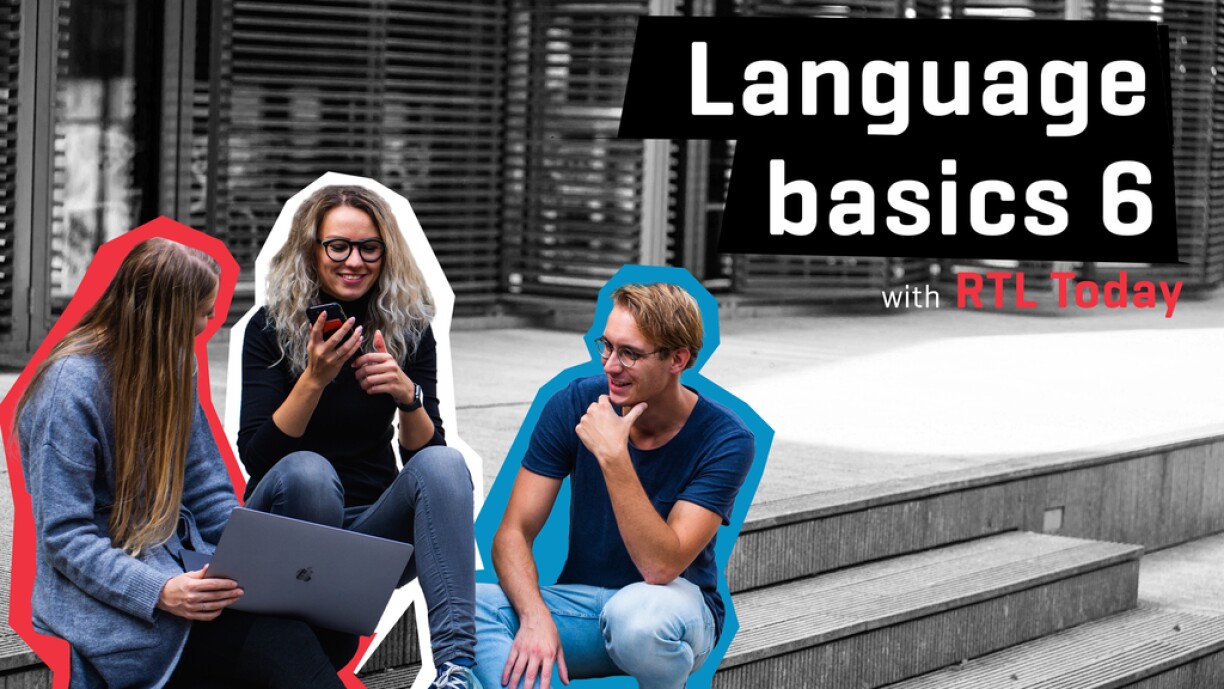
Hi there and welcome back to Language Basics!
Today’s topic is quite important when it comes to speaking Luxembourgish, especially if you’re a native English speaker… in fact, here’s already a perfect example as to why: In English, we can say “if you’re a native English speaker” without it coming across as rude or direct. The reason for this is that English has no separate pronouns for addressing someone formally or informally – ‘you’ is always correct, no matter the context.
Similar to a lot of non-English languages, Luxembourgish on the other hand uses different pronouns and verb forms depending on who you’re speaking to.
When talking to a friend, relative, or anyone you might want to address informally, you would use du.
When talking to a stranger, a public official, your superior at work, or anyone you might want to address formally, you would use Dir (in writing, Dir is always written with an uppercase letter to differentiate it from the second person plural, which is also dir)
Good to know: The act of addressing someone informally in Luxembourgish is called duzen while addressing someone formally is referred to as dierzen, i.e. Mir duzen eis means something like ‘We refer to each other in an informal way’. After a while, a Luxembourger might tell you something like Komm mir duzen eis (“Let’s speak to each other informally”) or Du kanns mech roueg duzen (“Feel free to talk informally to me”).
For possessive pronouns, we use däin / däin / deng in informal speech and Ären / Äert / Är in formal speech.
Example:
Your house → Äert Haus (formal) / däin Haus (informal)
As with the pronouns, we use the conjugation for the second person plural when talking to someone in a formal way.
Example:
Do you have a minute? → Hutt Dir eng Minutt? (formal) / Hues du eng Minutt? (informal)
While it may seem tedious to nearly always have to remember two verb forms for questions, it is quite important to get the difference right. While accidently talking to your Luxembourgish friend in a formal way might at worst just be a bit awkward, a police officer might not be so amused if you seemingly defy their authority by using du instead of Dir – although they will probably be able to tell that Luxembourgish is not your first language and glance over it (hopefully…).
As always, before we’re done for the day, we’ll leave you with a vocabulary list for the main lesson.
General supermarket terms
the aisle → de Rayon
the bag → d’Tut / de Sachet
the shopping bag → d’Akafstut
the shopping trolley → den Akafsweenchen / de Caddie
the (sales) receipt → de(n) (Keessen)ticket
Some common supermarket goods
food / foodstuffs → Iessen / Liewensmëttel
drinks → Gedrénks
the vegetables → d’Geméis
the fruit → d’Uebst
the dairy products → d’Mëllechproduiten
the coffee → de Kaffi
the tea → den Téi
the toothpaste → d’Zanpasta (also: d’Zännseef)
the toothbrush → d’Zännbiischt
the toilet paper → den Toilettëpabeier
the cleaning agent → d’Botzmëttel
the soap → d’Seef
the shower gel → d’Duschgel
the washing-up liquid → d’Spullmëttel (colloquially sometimes also Spüli)
the newspapers → d’Zeitungen
For other goods commonly sold at supermarkets, be sure to check LOD.lu to easily look them up.
Language Basics 1 – Counting, countries, and d’, de, den
Language Basics 2 – Grammatical gender
Language Basics 3 – The difference between ‘op’ and ‘bei’
Language Basics 4 – Counting beyond 100
Language Basics 5 – Ordinal numbers